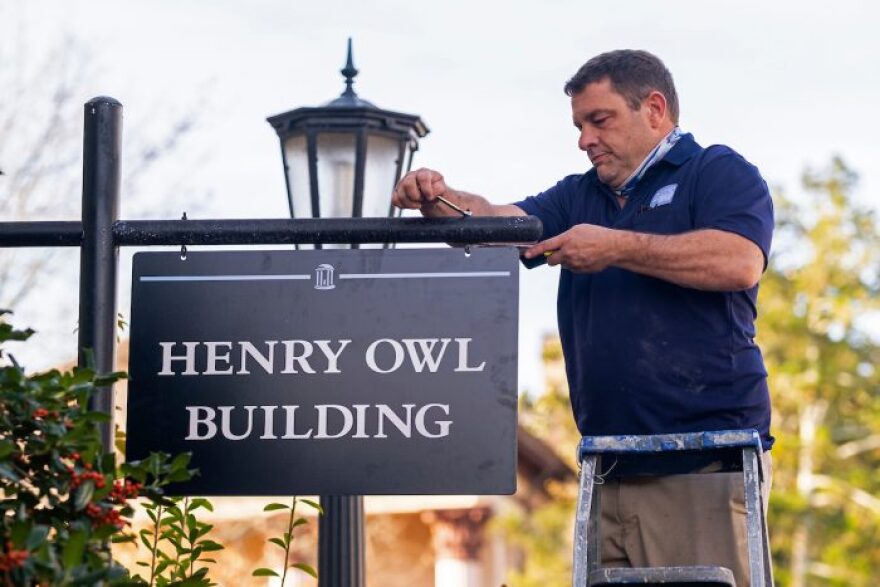Two buildings on the campus of UNC-Chapel Hill that had previously been named after white supremacists will now honor the school's first Black professor, Hortense McClinton, and the first American Indian student, Henry Owl.
McClinton and Owl's names were picked from a list of options recommended by a chancellor's committee.
For decades, faculty and students pushed for names that honored controversial figures — like people who led white supremacist terror campaigns and based their careers on creating Jim Crow segregation laws — to be stripped from university buildings.

Protests reached a fever pitch in recent years, prompting the university's Board of Trustees and Chancellor Kevin Guskiewicz to reconsider the board's 2015 decision to enact a 16-year moratorium on renaming campus buildings.
"Our aspirations to be the nation’s leading global public research university must include a much deeper dedication to reconciling that history with a contemporary commitment to full racial equality and inclusivity,” wrote Guskiewicz and Board of Trustees Chair Richard Stevens in an email to campus after the board voted to end the moratorium. “That requires real action and full accountability — and it will start with us.”

In 2020, the UNC-Chapel Hill Board of Trustees designated four buildings to be renamed, including the two that were officially renamed on Friday, Dec. 3. The two others were named for Josephus Daniels and Thomas Ruffin, Sr.
Hortense McClinton was the first tenure track African American professor at the University of North Carolina in 1966. McClinton was a social worker in Philadelphia and Durham. Her name replaces the former Aycock residence hall, named for Charles Brantley Aycock, a governor who played an influential role in the Wilmington Massacre in 1898.
As the first American Indian student at the University of North Carolina, Owl enrolled as a history graduate student in 1928 and documented the history of the Eastern Band of Cherokee Indians.
Owl's name goes on the student affairs building replacing Julian Shakespeare Carr, who was a member of the KKK during reconstruction. Carr also helped erect Confederate monuments, including one that stood on the Chapel Hill campus known as Silent Sam.
On Friday, the new signs went up at the nation's oldest public university.






